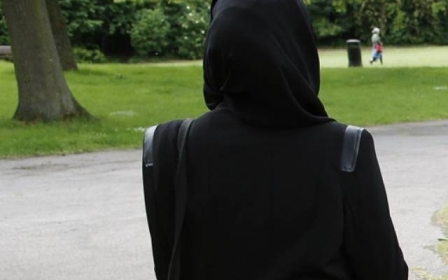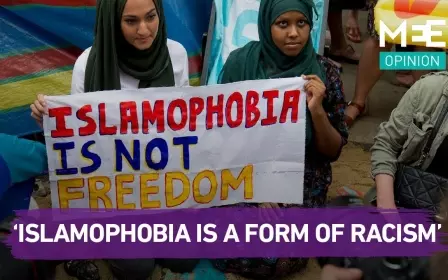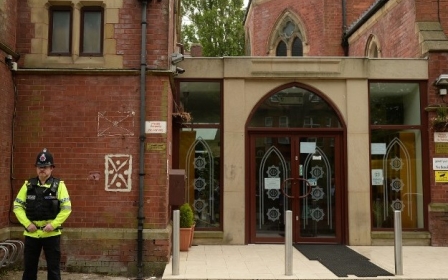Can Islamophobia be overcome through education?

While Islamophobia is a recurring feature of western mediascapes, a strong tide of mobilisation against its rhetoric is starting to bear fruit.
First recognised by the United Nations in 2001, Islamophobia has been widely integrated into western political vocabularies. But the term is riddled with ambiguities, leaving unanswered questions on whether the object of Islamophobia is just Islam or Muslim communities. Regardless, some of Islamophobia's effects are clearly observable.
In the western world, the new focus on Islamophobia has prompted a broad range of actors to critically challenge non-Muslim views of Islam and Muslims. This has led to examinations of the effects of these views on societal cohesion in multicultural societies.
Defining Islamophobia
Through various initiatives, such as the Yaqeen Institute for Islamic Research, remodelled public perceptions and critical knowledge are made available to mainstream media. In this process, the need for education, information and a critical review of knowledge production on Islam has become clearer. At the same time, new and complex questions have emerged about the causes of Islamophobia and broader strategies for overcoming its effects.
New MEE newsletter: Jerusalem Dispatch
Sign up to get the latest insights and analysis on Israel-Palestine, alongside Turkey Unpacked and other MEE newsletters
Although the debates about defining Islamophobia can be fierce, opposing camps tend to agree on one fundamental aspect: Islamophobia presents an undesirable facet of the societies to which it applies.
Islamophobia refers to attitudes and perceptions that depend significantly on ignorance or misinformation about Islam and Muslims. More often than not, these misperceptions persist in the West. A major objective of education is to help people get basic facts and terminologies right, so that they can make informed choices as citizens.
Nothing in the history of relations between Islam and the West rules out the creation of a cohesive society. A crucial aim of educational work is to convey the idea that individual attachment to a culture, or a religion, is not an attachment to one model of society, or one way of organising relations with other cultural groups.
Different choices can be made within a cultural framework when the question arises of how to organise a pluralistic society. By making the public aware of the internal differentiation (it is difficult to speak of the story of the West without referencing the West's various philosophies – there are inherently very different view/identities of societies and cultures in the West) and historical authenticity of cultures, knowledge of these choices can be spread.
Changing contexts of power
We need to abandon our static understanding of identity, and consider a space where options are deliberated and choices can be made and justified. Changing contexts of power and meaning tend to shape such deliberations and choices.
Over the past century, the contexts in which relations between the West and the Islamic world have unfolded have been continuously reconfigured. Education can greatly increase awareness of these changes, and the ways through which they affect identities and norms.
It is important to identify regularities, patterns and fixities in the social identities of a given population. Likewise, it is important to identify and distinguish between dominant and other views in social groups, whether they belong to the majority or minority. Recognition of the multiple asymmetries and inequalities structuring social life is a necessary condition for defining realistic educational strategies.
How can we separate Islamophobia from processes of securitisation and the effects of the 'War on Terror'?
The focus on education to counter Islamophobia has been criticised because it tends to individualise what is also a structural phenomenon. How can we separate Islamophobia from processes of securitisation and the effects of the "War on Terror"? Aren't all anti-Islamophobia strategies that ignore politics doomed to failure?
These questions are worth asking. If the aim is to correct misperceptions about Islam, it is not enough to identify and point out who stands to gain from spreading them. This instrumentalist approach to Islamophobia fails to answer why Islamophobic speech has been so successful.
We need to ask questions on what the appeal of this speech is, and which parts of society find it most attractive. Do Islamophobes have a particular profile? Does Islamophobia correlate with other forms of racism or political attitudes? Why do so many people believe contradictory claims about Islam and the West?
Holistic approach
There is widespread agreement among scholars of Islamophobia that the phenomenon cannot be reduced to issues of bias, prejudice or misrepresentation. But when scholars set out to define a more holistic approach to Islamophobia, opinions differ about the role and weight of international politics, debates about immigrants from Muslim countries, or economic developments.
In this respect, national contexts with different histories of Islam matter - sometimes greatly - and make it harder to draw up general models.
It is nevertheless possible to define a broader context for Islamophobia with distinct opportunities and constraints. Edward Said described Orientalism as part of a hegemonic formation in 19th-century European societies. Cultural leadership in these societies included a specific image of the East and a stable, fundamental distinction between Occident and Orient.
Today, the assumed dichotomy between East and West continues to shape western cultures, but it is also rejected by a broad range of actors. The authority of Orientalism in high culture is no longer self-evident. The definition of western civilisational identity and its relation to Islam are highly contentious issues, which constitute important battlefields for populist movements and parties in many countries.
In this sense, present western contexts for Islamophobia are characterised by major divisions between multiple social groups. The debate about Islam is also a debate about the future of the West, which perhaps more than in the past is an open one.
This article was submitted on behalf of the author by the HBKU Communications Directorate. The views expressed are the author’s own and do not necessarily reflect the university’s official stance.
The views expressed in this article belong to the author and do not necessarily reflect the editorial policy of Middle East Eye.
Middle East Eye delivers independent and unrivalled coverage and analysis of the Middle East, North Africa and beyond. To learn more about republishing this content and the associated fees, please fill out this form. More about MEE can be found here.







